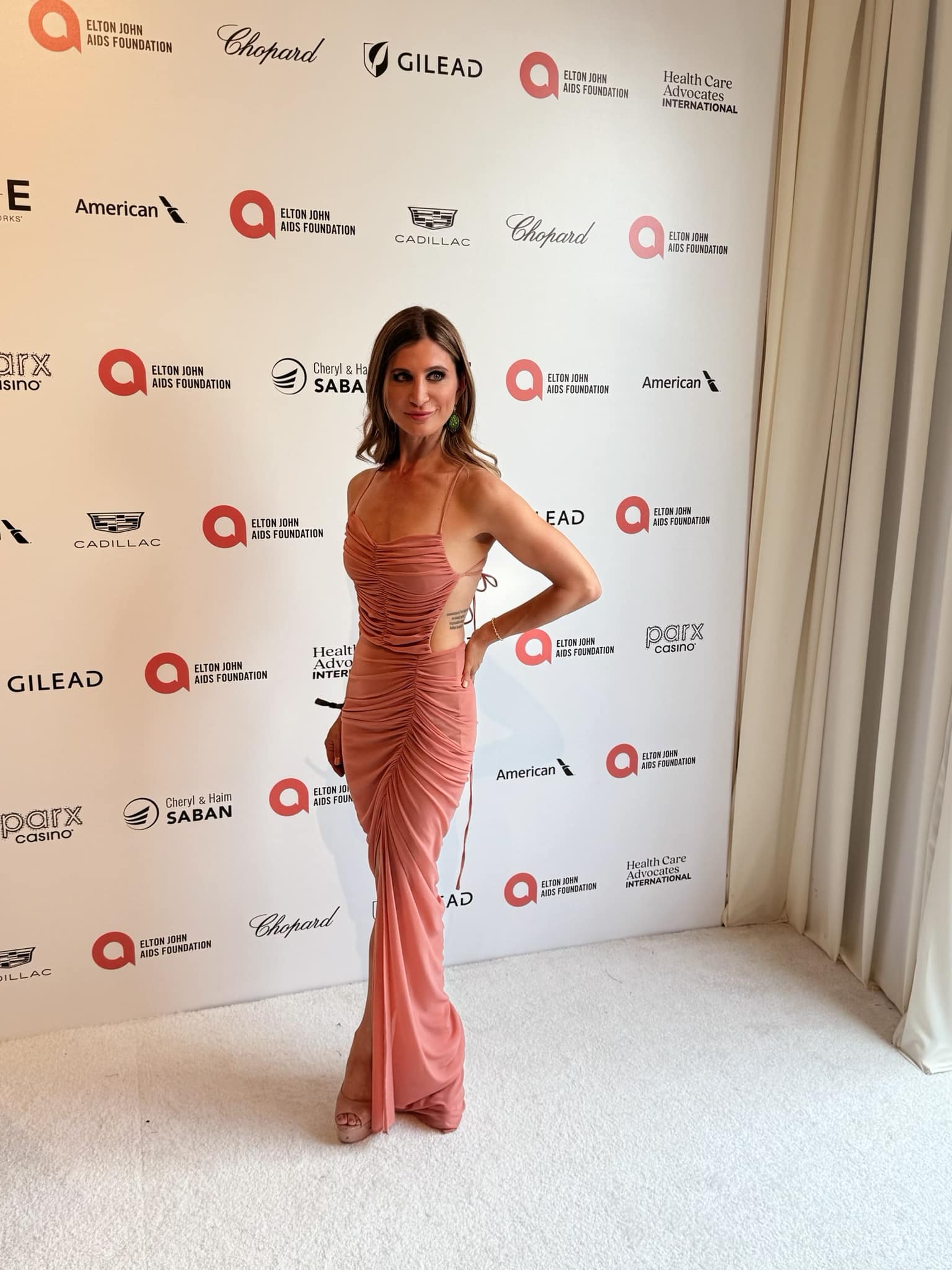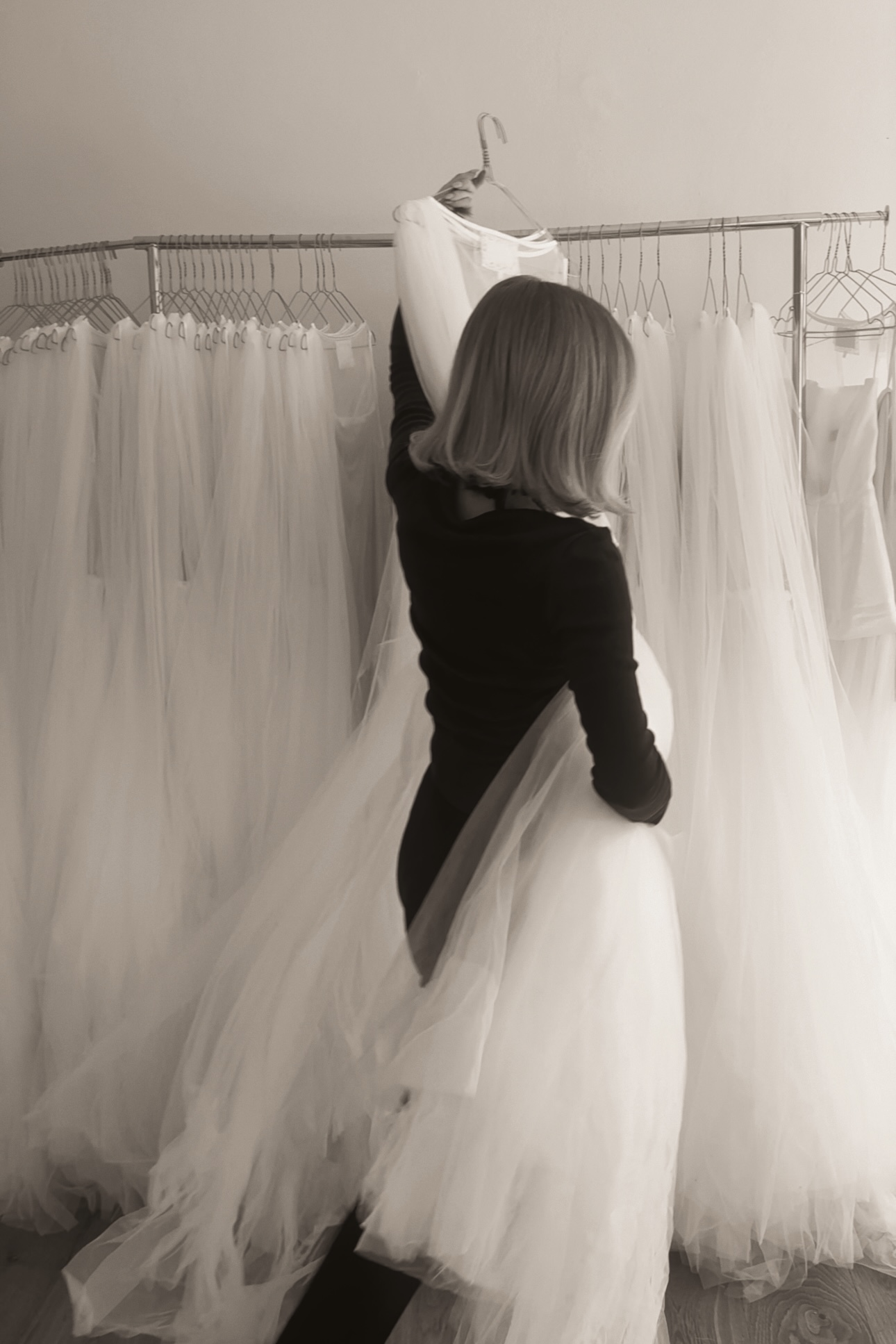Felicity Huffman is the Ultimate American Woman
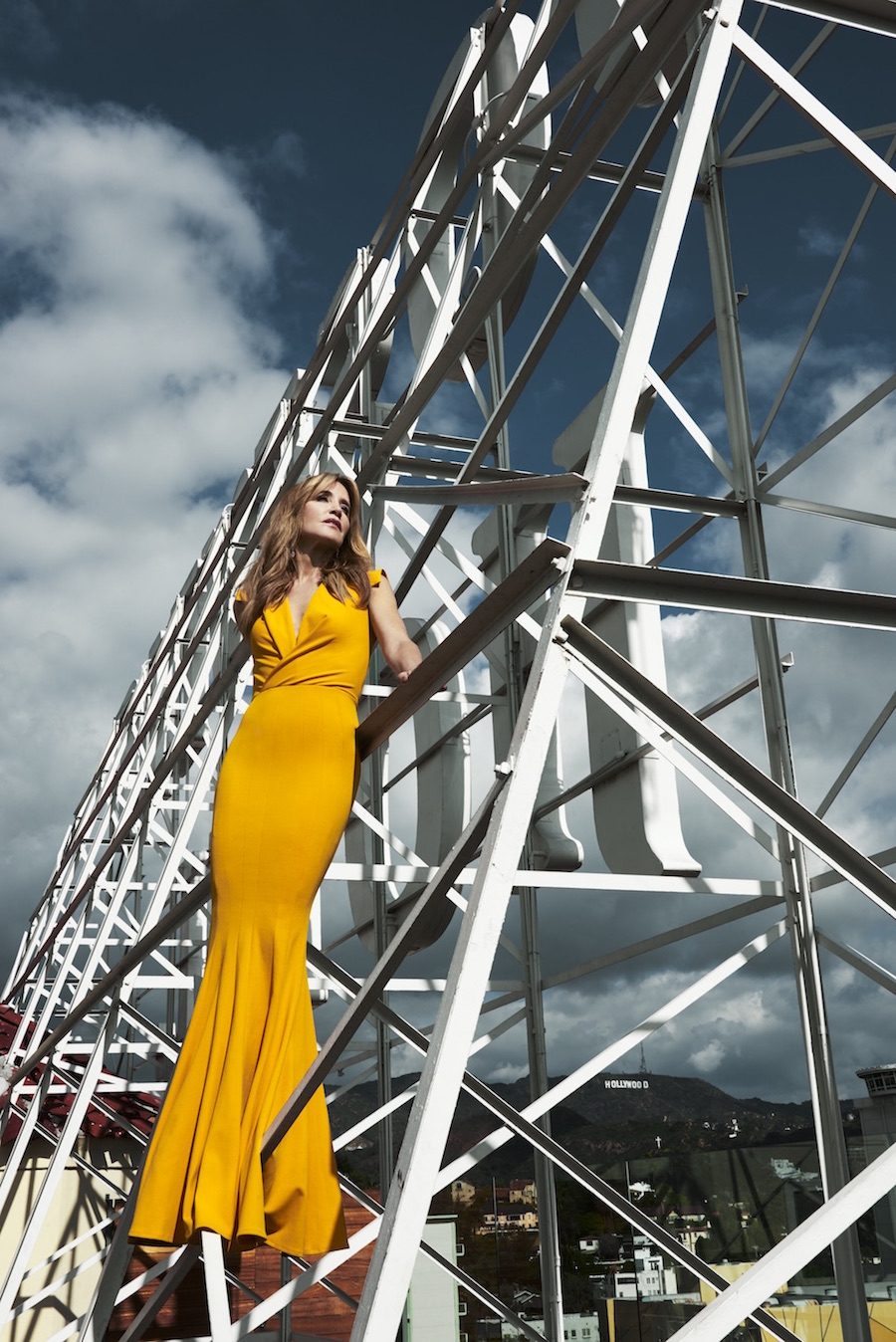
PHOTOGRAHY FREDERIC AUERBACH • STYLING LINDA MEDVENE • HAIR DAVID STANWELL • MAKEUP AUSTIN EVANS
SHOT ON LOCATION AT THE HOLLYWOOD ROOSEVELT HOTEL
When you’ve been happily wedded to the same man for almost 20 years, and you’ve managed to do so within the Hollywood bubble, it’s no wonder every woman in America is desperate to know your secrets to a successful union. But while Felicity Huffman vows she would “never give anyone marriage advice,” she does have one rule of thumb for keeping that work-love-life balance—which is even more important when your hubby (Shameless star William H. Macy) also happens to be your director. “We used to have a rule that we couldn’t talk about work in bed. So we’d be laying there and I’d go, ‘Oh my God, I have an idea for a scene!’ and we’d get up, walk to the side of the bed, and discuss it.”
Wise, no? But what happens when you’re married and it’s your job to argue? That’s the question of the hour for the Golden Globe and Emmy-winning actress, who recently finished shooting this art-imitates-life scenario for the pilot of Libby & Malcolm, a new comedy of errors for ABC from Black-ish creator-producer Kenya Barris and coexecutive producer Vijal Patel.
The half-hour, single-camera sitcom revolves around a marriage of apparent polar opposites. Courtney B. Vance, of The People v. O.J. Simpson: American Crime Story, plays a black, Democratic pundit and widower from the north with three kids who falls in love with and marries Huffman’s Southern-born Republican. (In real life, these two get along like gangbusters, and Huffman describes the dapper actor as “hilarious.”) As if the sitcom couple’s situation doesn’t already sound like a struggle, they also have their own political TV show, where arguing over their opposing views isn’t merely encouraged, it’s the point.
“They cross the aisle by walking down the aisle,” Huffman explains. “The show is very humorous; it’s a razor’s edge comedy [with the underlying theme] of love conquering all [while] exploring how politics can affect our families.”
The show’s content is tongue-in-cheek, but its message, especially at this point in time, is thoughtful, relevant and serious. “I hope if [the pilot gets picked up] that both Republicans—of which I have many in my family—can go, ‘Yes, I appreciate that point of view,’ and that Democrats can do the same, that white people can do it and black people can do it. By feeling that they are being heard and represented authentically and honorably on television, we can all relax a little bit and listen to the other side.”
This is something she personally has learned from her sisters—she’s the youngest of eight children and one of seven girls, raised by an investment banker father in the affluent suburb of Bedford, New York—a few of whom have opposing political beliefs. “We can all be wrong,” she notes. “I have two sisters who are staunch Republicans and, although I think everything they feel ideologically and politically is wrong, [it’s interesting] to think about and discuss our differences as opposed to just going, ‘I’m right and you’re wrong.’ ”
While she’s not expecting miracles from the sitcom, Huffman does hope—maybe naively, but from a place of unflagging optimism—that anyone who watches will be able to take a step back and listen before dismissing the other person’s opinion. “It won’t change anyone’s mind. You can’t change a Democrat’s mind. You can’t change a Republican’s mind. But wouldn’t it be nice if we were interested in the other person’s point of view, as opposed to [being] disgusted by it?
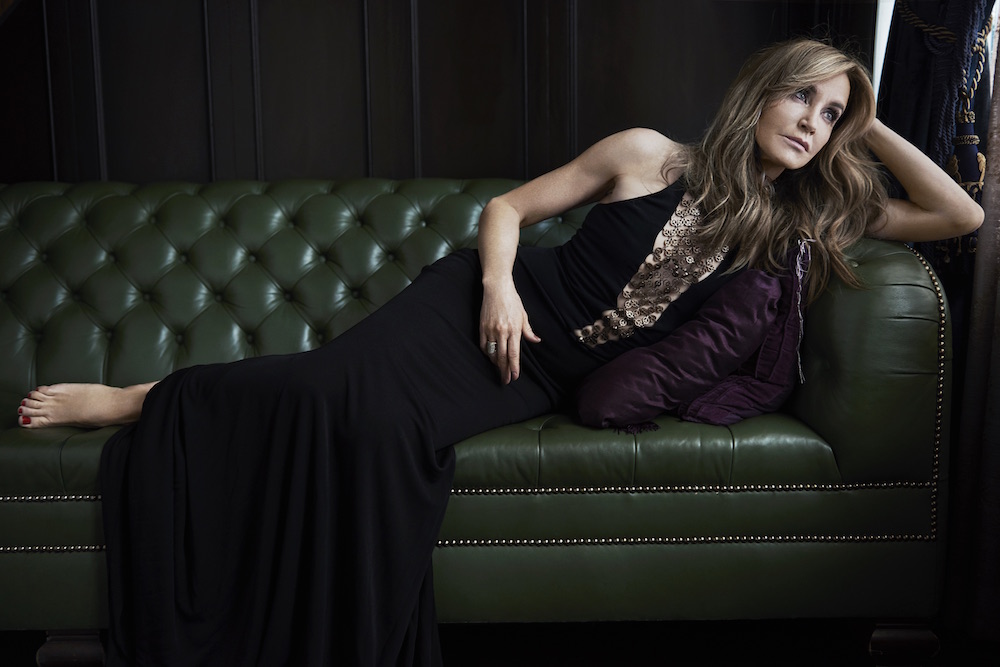
“It’s hard because people feeling passionate and patriotic is what formed this country,” she says. “People were willing to lay it on the line because of their beliefs. You don’t want to take away people’s passion. If they truly do believe that someone or something is bad for the country, you want them to be able to voice their opinion. In my opinion, this is a little bit ‘Let’s not hate the players; let’s hate the game.’ ” She continues: “There’s something that needs to change in our structure in terms of a two-party system, how money is spent, how people are elected. If you look at the good side of how divided this country is now, it’s such an extreme and it feels so painful that maybe people are willing to look at it and do it differently. You only change when there’s pain.”
That said, Libby & Malcolm is meant to bring light to the subject with humor. “We need to be able to laugh; otherwise we’re going to cry,” she notes. “So it’s important that we get this right.”
A strict comedy—notwithstanding its serious edge—was a welcome challenge for Huffman, who hasn’t honed her comedic chops on a small-screen series since Aaron Sorkin’s critically acclaimed comedy-drama Sports Night was cancelled in 2000. “The great thing about being part of Libby & Malcolm is that it’s such a departure for me. [Comedy] uses different muscles and a different approach to the work.”
And it’s more fun, too. After eight years of drama on Desperate Housewives, as well as stepping into her third year of John Ridley’s American Crime Story, an anthology drama that tackles tough social issues, she is ready to let loose.
“Libby and Malcolm are paid to disagree on TV. It’s a prizefight. [But] that car ride home after you’ve just had the stuffing knocked out of you by your husband on air, what’s that like?”
She has to take some artistic license there. As we already mentioned, her husband does double duty as her frequent director (he starred in and directed Huffman and other heavy hitters in the indie drama Krystal, which wrapped last summer). “He’s been directing me since I was in my 20s. As a director, I trust him deeply. Sometimes, I don’t know the directors and don’t know their tastes, and I think, Is that the right idea? But with Bill, I trust him 100 percent. It’s a win-win.”
After studying at London’s Royal Academy of Dramatic Art, Huffman began a stint at New York University’s Tisch School of the Arts, from which she eventually graduated with a drama degree in 1998. In between, she was active in the Manhattan theater scene, working with Pulitzer Prize-winning playwright David Mamet at the Atlantic Theater Company—which he founded with Huffman and 30 other NYU students, including Macy. Huffman and Macy first appeared onscreen together in Mamet’s 1988 dramedy, Things Change (which also happened to be her silver-screen debut)—and they have gone on to jointly star in an additional 11 films, including Magnolia (1999), Cake (2014), and Stealing Cars (2015). “Acting with Bill is amazing,” she gushes. “He raises the level of your game. He’s such a great actor.”
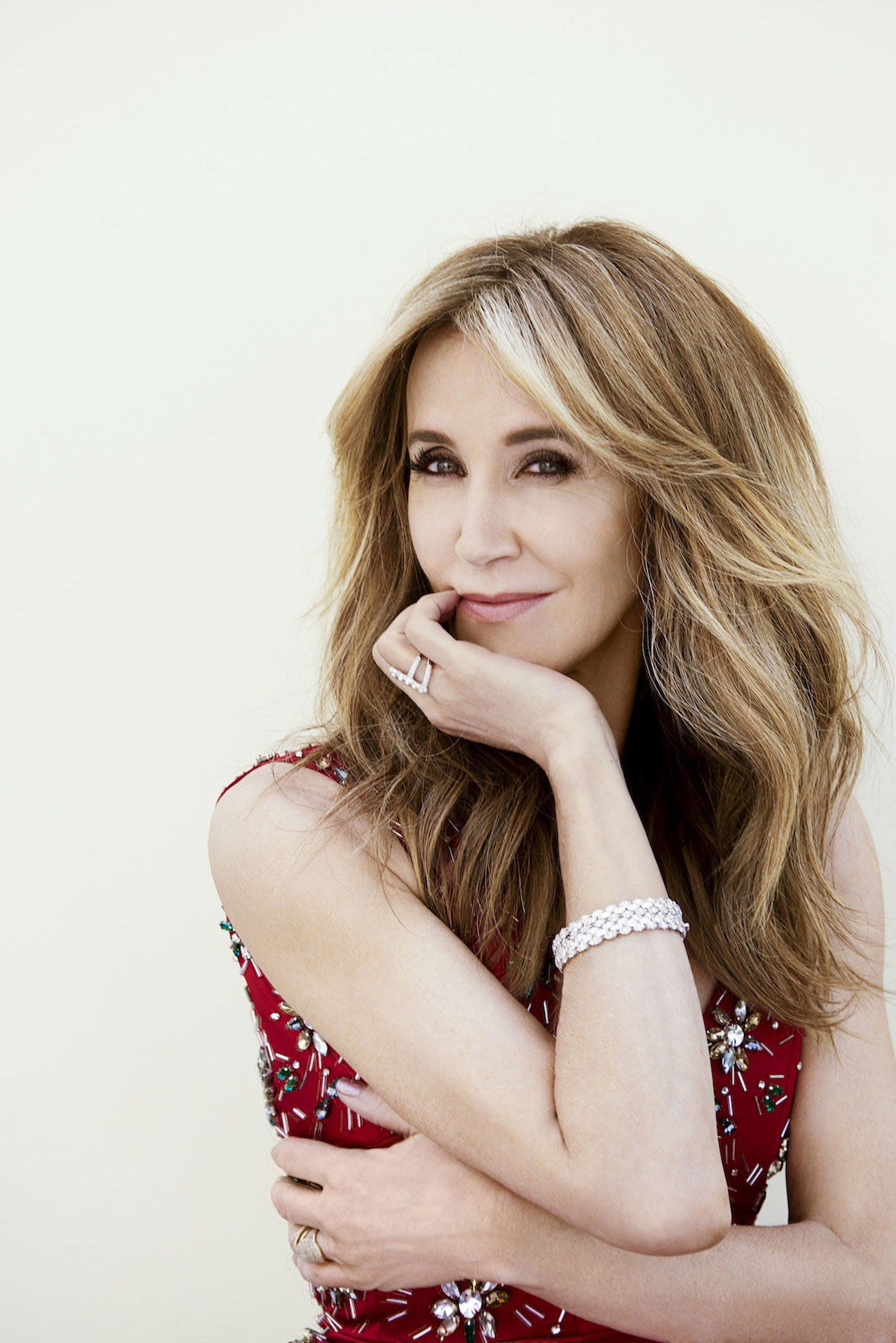
On a personal level, she finds him to be just as awesome. Just saying. “I really got lucky marrying Bill Macy. My mother said, ‘Marry a man of character.’ And I did. I swear to God, every time he walks in the room, I go, ‘It’s Bill Macy!’ ” she says with a tiny squeal and a massive grin. “I’m so happy to see him. He makes me laugh and he’s really smart and he’s really honorable.”
To see the two together is a thing of beauty. They’ve been a couple for nearly 35 years, but at first glance you’d think they were newlyweds still living that blissful honeymoon phase. Every time they walk down a red carpet, they’re the couple you want to be—always together, completely unaffected and obviously in love. He even stopped by our shoot at the Hollywood Roosevelt Hotel to say hi, tell his wife she’s beautiful, give her a kiss, and leave—all within the span of 10 minutes.
Maybe part of their magic is that they’re so atypically Hollywood. There are no diva demands from either; they are people you could barbeque with, hang out with. She watches Pretty Woman with her daughters and can speak eloquently about the Gilmore Girls reunion. They are happy and it’s catching.
“It’s also a normal marriage,” Huffman insists. “We get frustrated just like everyone else.” That said, she can sum up their relationship best with a quote by lyrical poet and novelist Rainer Maria Rilke: “Once the realization is accepted that even between the closest human beings infinite distances continue, a wonderful living side by side can grow, if they succeed in loving the distance between them, which makes it possible for each to see the other whole against the sky.”
AMERICAN CRIME, WOMEN’S RIGHTS, AND SUPERHERO FANTASIES
Huffman’s current focus is the third season of ABC’s critically acclaimed American Crime, which returns to the network on March 12. The series from Oscar-winning 12 Years a Slave scribe turned show runner and executive producer John Ridley is supremely innovative; each season, it focuses on current, complex issues through the lens of different crimes.
This season, Huffman, Regina King, Timothy Hutton, and Lili Taylor will return to the small screen to focus on human trafficking, labor issues, immigration, workers’ rights, and economic segregation, linking seemingly unrelated people and scenarios together through unlawful acts. As usual, the show’s hot-button issues will likely strike a chord with many viewers.
For the latest installment, filming moved from Austin to Los Angeles, but the story is meant to take place in North Carolina. Huffman plays Jeanette Hesby, the wife of a wealthy tomato farm owner who finally begins to learn the disturbing truth behind the family’s wealth.
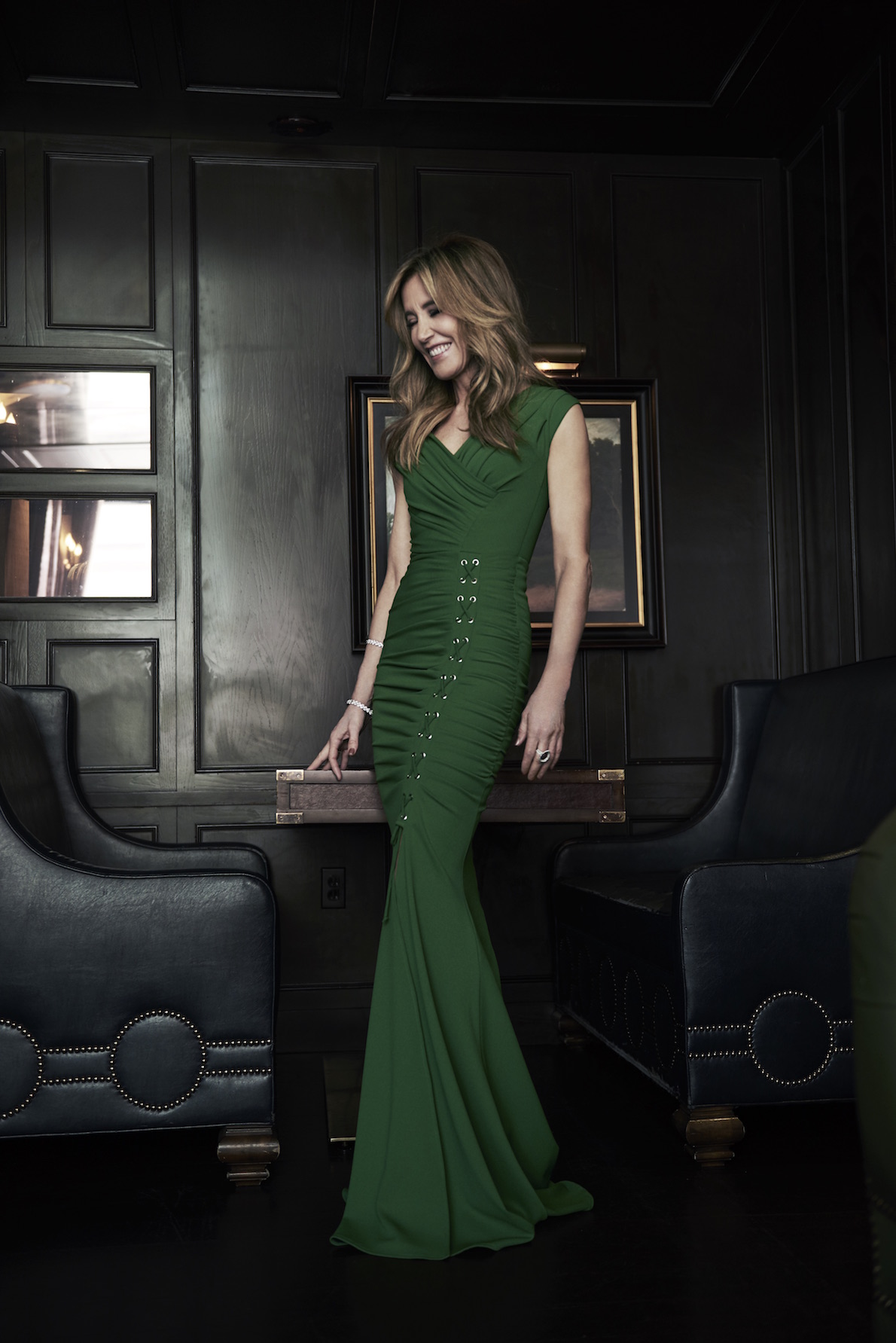
Given that Huffman was a theater vet before becoming a film and television star—even winning an Obie Award for her performance in David Mamet’s 1995 off-Broadway play, The Cryptogram—it shouldn’t come as a surprise that she went method to play Jeanette, working with a dialect coach to transform her New York-born self into a Southerner.
But she may have gone a little too method, as it turned out. “When I was told Jeanette was from North Carolina—I have friends and family from North Carolina—I went to my dialect coach and worked really hard because [the accent] is very specific. I walked into the first read-through and I was the only one with an accent,” Huffman recalls. “I went ‘Oh no, I’ve made an enormous mistake.’ And John went, ‘You need to tone it way down.’ There was some adjustment.”
This season of the series, which has been nominated for 16 Emmys and five Golden Globes since its 2015 debut, will deal with how Americans can be part of the very fabric of a crime―simply by doing something as innocuous as buying tomatoes. “It exists as a subterranean threat that runs throughout our modern-day life,” Huffman explains. “John Ridley and [producer] Michael McDonald, in their fashion, have decided to take that thing that’s somewhat hidden and bring it to life. The subject matter is serious, but what they did this season is make [the issue of forced labor] accessible. They keep giving you the sense and feeling of walking a mile in someone else’s shoes. No one’s the good guy and no one’s the bad guy. Everyone is going, ‘My exigencies make me take advantage of other people.’ ”
However, there’s more to the show than just crime. It raises provocative questions via its central characters that could be ones you ask yourself. Despite the many threads running through the season, one central question,―in Huffman’s opinion,―arises: “Can you [both] take care of yourself and take care of others?”
It’s a question she has grappled with on a personal level as well. “When you’re on an airplane, they always tell you to put your oxygen mask on first and then take care of your kids [if there’s a problem]. As a parent, I’ve always run afoul of ‘Do I take care of the kids until I’m so thin and strung out that I’m no good to anybody and nobody wants to be around me?’ What constitutes taking care of yourself? Can we all take care of each other without abandoning ourselves?”
But is this narcissistic urgency that has infiltrated our society the greatest of crimes? “I think the greatest American crime is that we have stopped listening to each other; we have stopped trusting each other and the country is so divided. People feel so alienated, and I think that is the crime.”
She may not know how to solve it, but that doesn’t mean she isn’t trying. Huffman and her two daughters, 16-year-old Sophia Grace and 14-year-old Georgia Grace, headed to D.C. in January to walk in the Women’s March on Washington. Huffman says she didn’t march to protest President Donald J. Trump—she went to support women and show her daughters that you need to stand up for something you believe in. “It was amazing. Everyone was together and positive; everyone was strong,” she recalls. “We were packed in. It was like a tight nightclub all over Washington. The silver lining in [Trump’s presidency is that] it has galvanized people. I thought it was really, really powerful and completely peaceful. I saw a bunch of Republican women there going, ‘I’m here and I want to stick up for women and women’s rights. We are here, we matter, we count, we have power.’”
As much as she loves La La Land and the beauty of living in a town of storytellers, she finds the double standard towards women in the industry a challenge. “We live in a patriarchal society. It’s getting better, but it’s still in the fabric of America. One of the ways you have power in this world is to have money, and women just don’t have the traction to get that kind of money,” she notes.
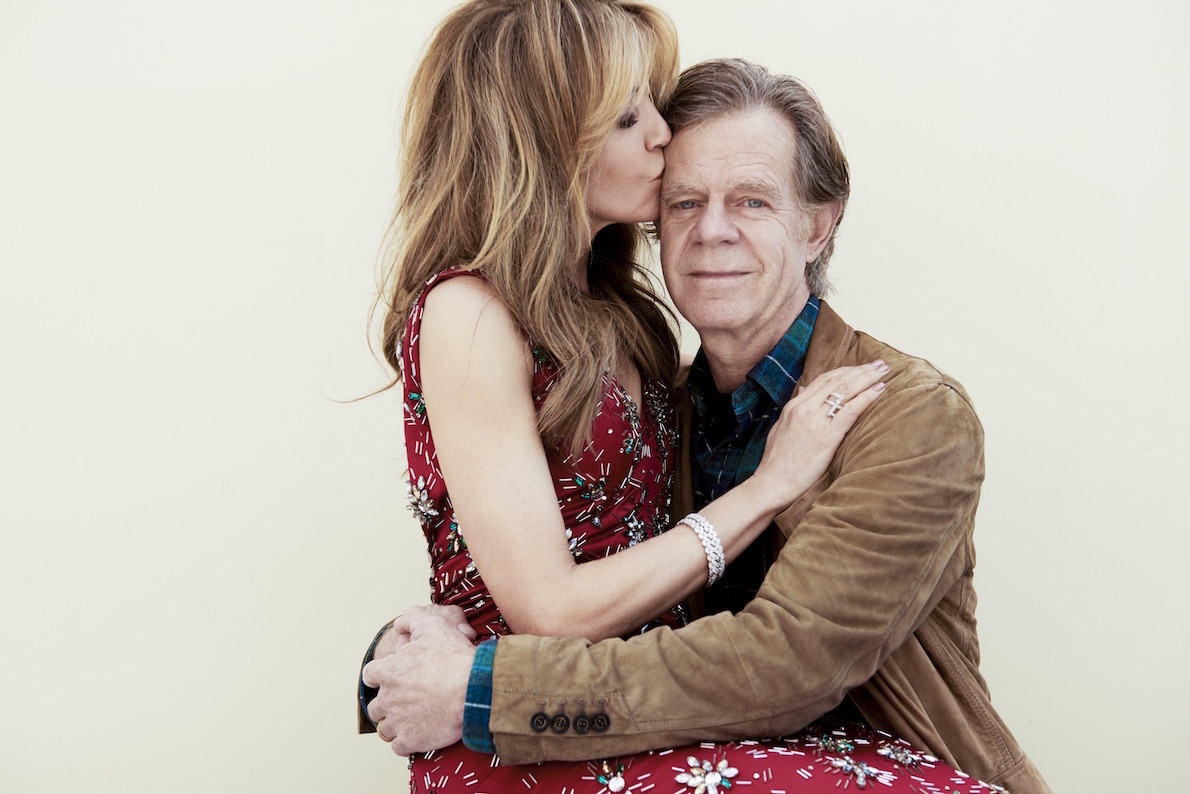
“[The most difficult thing about Hollywood is that,] it doesn’t exactly feel like a meritocracy—it feels like a gold rush. Everyone’s looking for the shiny, new thing.”
Still, Huffman doesn’t seem to have any problems. Although she is not starring in Amy Schumer’s Carol Burnett pilot (it’s just a rumor, she learned about it herself online), nor will you see her hour-long darkly satirical series on the fashion industry, House of Moore, in the near future (the pilot didn’t get picked up, but she’s sure it will live somewhere else at some point). And that Desperate Housewives reunion fans have been clamoring for, with the chance to reprise her Emmy-winning role of stay-at-home mom Lynette Scavo? “It’s not going to happen. I think [writer and producer] Mark Cherry ran through all the stories―and then some. The well is empty. Now it would be called Desperate Old Biddies.”
She’s being self-deprecating. But in truth, Huffman is pretty content these days with her work and her place within the Hollywood machine. True story.
“Because of American Crime, and also because of the pilot I’m doing right now, I would say I’m in the best place in my career that I’ve ever been. I think that I’m old enough now in my craft to know…what I’m going for. I think [I have the] skills as a craftsman to learn how to get to that goal or at least how to try and get to that goal, and I think I’ve been lucky and blessed enough to meet John Ridley and have him behind me.”
She laments, “Talk about standing upon the shoulders of those who came before! I have a long list of people to thank who got me here―who, for some reason, believed in me. I’m grateful to all of them. It started with David Mamet and then went to Aaron Sorkin, then Mark Cherry, then John Ridley, and now Kenya Barris.”
She pauses a second, reflects on her list of champions, and says, “Speaking about equal rights and why women aren’t in positions of power [makes me think that] maybe my daughters—one of whom wants to be an actor—maybe when she lines up the people who she’s grateful for, I certainly hope it’s a list of women.”
Although she’s a woman who has seemingly done it all—earned nominations for many awards for the big and small screens and stage (including an Oscar nod for her 2005 film, Transamerica), was a founding theater company member (the Atlantic Theater Company), wrote a book (A Practical Handbook for the Boyfriend), and created an award-winning website dedicated to women and mothers (WhattheFlicka.com, which happens to be her nickname, a reference to a popular 1943 horse film, My Friend Flicka)—there is still more, always more, she’d like to try. “I would really like to do three things: I would like to do a period piece, a Western, and a blockbuster…but a blockbuster as [in] a superhero movie. I’d want to be a kickass superhero.”
Have we learned nothing? This woman, who has done it all and seems to have it all, already is one.

